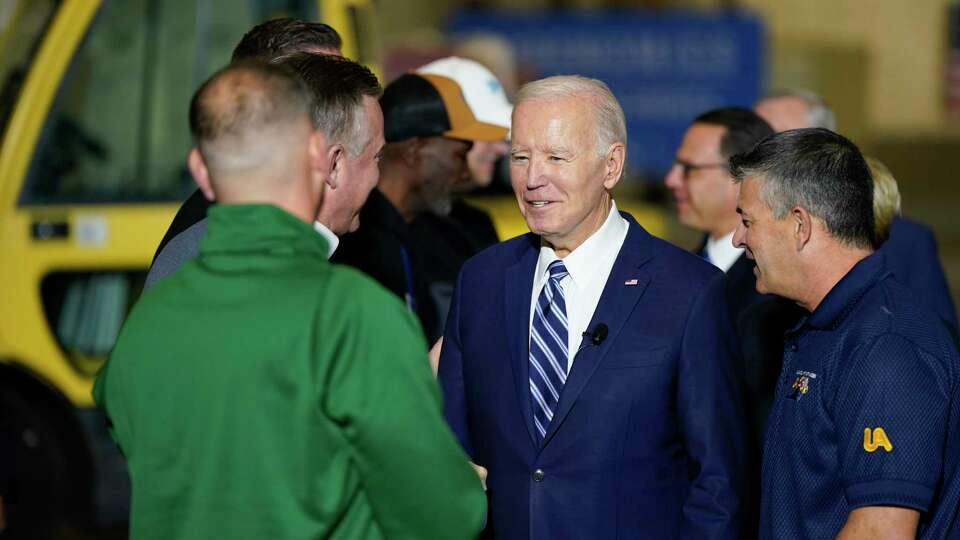Reader, we hope you've been enjoying this newsletter. It will soon be for paid subscribers only. To continue accessing award-winning commentary on politics, money and life in Texas, subscribe now: 6 months for 99¢.
Ignorance grants permission
Newton's Third Law says for every action, there is an equal and opposite reaction. But how often do we consider the effect on others before we make a decision?
About 40 percent of people deliberately choose not to know how their actions will affect others, according to a study published in the American Psychological Association's Psychological Bulletin. They don't want to feel guilty.
"Examples of such willful ignorance abound in everyday life, such as when consumers ignore information about the problematic origins of the products they buy," lead author Linh Vu, a doctoral candidate at the University of Amsterdam in the Netherlands, said in a press release.
Vu and co-author Shaul Shalvi, a professor of behavioral ethics at the University of Amsterdam, reviewed 22 research studies with 6,531 participants. Subjects were placed in different scenarios and either warned of the consequences of their choice or given the option of not knowing.
Two out of five chose ignorance. Researchers believe those participants wanted to preserve their self-images of being good people. For example, if they knew a shirt they wanted was made by prison labor, that would create a dilemma. Better to put their hands over their ears and shout, "NA-NA-NA-NA-NA," than face the truth.
Journalists encounter this behavior every day. Whether we are writing about climate change, politics or consumer products, many people do not want to know the truth, lest they feel bad about their behavior. In some cases, people would rather deny reality than experience shame.
In my experience, we must give people an off-ramp where they can slowly acknowledge how their actions harm others and allow them to reconsider their choices comfortably. Because the study also found that when people learned beforehand their actions would have a positive impact, they were 15% more likely to follow through. Carrots are better than sticks.
Everyone is the hero of their own story. If we want lasting change, we need to give people the opportunity to live up to their expectations of themselves.
MEA CULPA: Last week, I explained how Tomlinson's Take would soon become subscriber-only and said there was a way to pay for only the newsletter. Well, that link is not ready yet, but we hope to offer it next week. Subscribers to the San Antonio Express-News and Houston Chronicle need do nothing; newsletters are one of your benefits.
 | Chris Tomlinson, Business Columnist |
What Else I'm Writing

Photo by: KENT NISHIMURA, NYT
What is a hydrogen hub; do colors matter?
A Texas hydrogen hub will bring in $1.2 billion for green and blue hydrogen facilities that will fight climate change.

Photo by: Jordan Vonderhaar/The New York Times
Bitcoin miners running up electricity bills
Crypto mining drives up electricity prices by $1.8 billion annually, likely higher.
What I'm Reading
Must Read: Texas judges must retire at age 75. Voters could give them four more years on the bench Why do baby boomers have such a hard time accepting retirement? (Houston Chronicle and San Antonio Express-News)
Should Read: Journalist casualties in the Israel-Gaza conflict As of Oct. 18, at least 17 journalists were among the dead. (Committee to Protect Journalists)
Interesting Read: U.S. Supreme Court to weigh Castle Hills claim of immunity for city officials A former alderwoman from a wealthy San Antonio suburb fights the power. (Houston Chronicle and San Antonio Express-News)
Technical Read: When Product Markets Become Collective Traps: The Case of Social Media Large shares of consumers use Instagram and TikTok out of a fear of missing out rather than genuine interest and, as a result, are worse off than if the platforms did not exist in the first place. (University of Chicago, Becker-Friedman Institute)
Fun Read: 15 Years After Hurricane Ike: How Bolivar Peninsula and Its Food Culture Have Changed (Texas Highways)
Question of the Week
What truths do you avoid to keep from feeling guilty? Reply directly to this email and tell me your thoughts.
Mailbag
Last Week's Question: Should we negotiate with violent groups, even if some call them terrorists?
"I don't know if I would say negotiate but certainly believe it is imperative to talk to them. There can never be the possibility of finding a middle ground or understanding their positions if you don't talk." – Rosalind Wilkins Haith, Houston
"Never. It legitimizes violence as a political tool (yes, I read the quote in the newsletter), rewards those who employ it and sets a precedent for others to follow." – Tom Phillips, San Antonio
"We must negotiate with terrorists when innocent civilians are taken as hostages. Negotiation creates dialog and, more importantly, buys time for the hostages. Rescue attempt(s) can be devised and deployed if the negotiations break down and lead to failure, resulting in hostages being executed. Time is the only hope hostages have for survival." – Deb Conley, Boulder, Colo.
"We have always negotiated with violent groups - Chamberlain's appeasement, the Cuban missile crisis, Korean War Armistice, etc. The question is: What and When do we negotiate. … What we have to realize is that a military victory only leads to a reboot of the cause of the war." – James Babb, Friendswood
The Takeaway
The U.S. Fish and Wildlife Service took 21 species off the endangered species list this week. They are now officially extinct.
It's a hell of a way to mark the 50th anniversary of the Endangered Species Act. The lost species include a bat, 10 birds, two fish and eight types of mussels. Among the fish was the San Marcos gambusia, a minnow-sized species similar in appearance to the mosquitofish and unique to Central Texas.
The announcement reminded me of one of my early columns where I decried Sen. Ted Cruz for declaring that the endangered Dunes Sagebrush Lizard was "our lizard, and they make darned fine boots."
In a 2014 column, I supported former Texas Comptroller Susan Combs' effort to minimize environmental lawsuits and reach species-protection agreements with the oil and gas industry. More money spent protecting nature and less used to pay lawyers made sense to me. But I was naive about her lizard preservation efforts.
"Turns out that the Texas Habitat Conservation Foundation, created to protect the lizard, did nothing, NOTHING, that was promised for years," I wrote two years later. These days, I am much more focused on proven results than press releases.
There is good news on the Endangered Species Act's anniversary. All those lawsuits and protests against destroying nature have yielded results.
"The ESA has been highly effective and credited with saving 99% of listed species from extinction," the wildlife service said. "Thus far, more than 100 species of plants and animals have been delisted based on recovery or reclassified from endangered to threatened based on improved conservation status."
We'll never protect every species, but we can at least keep some from becoming Ted Cruz's footwear.
Share With Your Friends
Do you know someone who would like Tomlinson's Take? For the Houston edition, send them here to sign up; for the San Antonio edition, send them here.
Unsubscribe | Manage Preferences | Privacy Notice

Houston Chronicle
4747 Southwest Freeway, Houston, TX 77027
© 2023 Hearst Communications


No comments:
Post a Comment